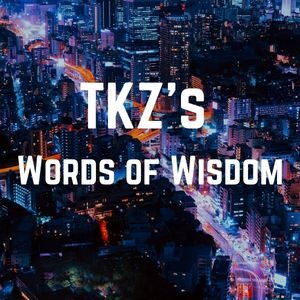
Now and again we reach back into the TKZ archives for some timeless advice and offer them to you for discussion. Please reply, riff, or rant in the comments and interact with each other!
Today, we have discussions on violence and desensitization, reading reviews, and messy desks. Here’s to a spirited discussion.
In movies, books and television, I wonder sometimes if the downplayed violence–the off-screen murder that drives the meat of the plot–isn’t more of a disservice to society than their counterparts which take you and your senses into the true horror that violent crime inflicts. The dead butler in the library didn’t just arrive there to provide a puzzle for our sleuth to solve. He was a person whose last moments were anguished and wracked with agony. I’m not sure it’s good that the likes of Miss Marple, Jessica and Hercule are so able to push that aside.
Obviously, tastes vary. I respect that different forms of suspense attract different readers, but when it comes to desensitizing people to violence, I do wonder which form erodes the social fabric more. Or, as an alternative, does fiction have a measurable impact at all on such real-life sensitivities? What do you think? What are your violence thresholds? – John Gilstrap, January 2010
***
I know this is going to sound counter-intuitive, and for many authors, nearly impossible, but here’s my advice: don’t read your reviews, ever. Turn off that Google alert. Skip the Amazon reviews section. Ignore your GoodReads ratings. And if you must know what a blogger or traditional media reviewer is saying about your book, enlist someone you trust to skim the contents and give you the highlights.
This applies not only to negative reviews, but positive ones. Because here’s the thing. As we all know, a reader’s opinion of a book is enormously subjective. The way they approach a story can vary at different points in their lives, or even their day. They read things into it that you might never have intended–and they’re all going to have vastly different opinions about what worked and what didn’t. – Joe Moore, January 2013
***
I was pleased to read that this phenomenon is borne out in a book called The Perfect Mess by Dave Freedman and Eric Abrahamson which contends that those with cluttered, messy desks are often more efficient and creative than their neatnik brethren. Since my desk always looks like a disaster zone, I think I am going to stick with the Freedman/Abrahamson interpretation…but nonetheless I have to wonder whether most writers are like me – or whether I am just deluding myself that disorder is merely a sign of a great author in the making.
So, what about my fellow writers? Do you, like me, have a messy desk full of piles of paper or are you a neat freak with everything organized and de-cluttered for the sake of productivity and sanity? What do you think, is a messy desk a sign of creativity or just plain slovenliness? – Clare Langley-Hawthorne, February 2011
I will respond to comments this morning. This afternoon I will be away from my computer for a family gathering, and I will respond to your comments later this evening.
